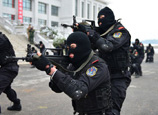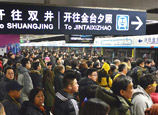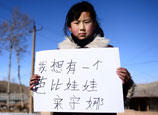
NEW YORK, Jan. 7 (Xinhua) -- China's economic growth in 2013 would be stabilized and outperform that of 2012 and the country should accelerate economic reforms, a group of renowned economists said here Monday.
The Chinese economy would grow at 8-8.5 percent this year, faster than in 2012 and with inflation under control, Justin Yifu Lin, former vice president and chief economist of the World Bank, said during a forum on China's economic forecast jointly held by the National Committee on U.S.-China Relations and China Center for Economic Research.
Lin said investment would continue to be a strong driving force for the Chinese economy, adding that households' income and domestic consumption would also expand rapidly.
He is also confident that China could maintain an average growth rate of 8 percent in the next 20 years as there are still great potentials in industrial upgrading and infrastructure investment.
In the meantime, he suggested that China deepen market-oriented reforms and accelerate reforms in its social security system and income distribution.
"As the new government of China is just in the corner, in the next few years China's growth will not only stabilize but will accelerate," said Huang Haizhou, chief strategist at China's International Capital Cooperation (CICC). He expected the economic growth to reach 8.1 percent in 2013.
Lu Feng, director of China Macroeconomic Research Center predicted China's economy would grow 8.1-8.2 percent this year based on growth forecasts by research institutions.
Regarding reforms on the financial market, several experts called for acceleration of interest rate liberation, RMB internationalization and tighter regulations over shadowing banking and local government loans.
As for investment strategies in China, the CICC's Huang said the Chinese market would improve this year with two rounds of rally. The first round will likely occur in the first quarter and the second one in the second half of 2013, with new economic programs launched and the United States, China's second largest trade partner, picking up growth momentum.
For the whole year, he predicted the A-share would rise 15-20 percent, and the magnitude may be bigger if other factors, such as stronger money injection by the central bank and milder regulations on bank bars, come in.
Huang said that while China's contribution to the world's GDP was growing larger, its contribution to the global capital market would also catch up.
On the RMB's exchange rate, Huang Yiping, a professor of Peking University, said that judging from the current account balances, the exchange rate may be close to the equilibrium rate now.
China's central bank had also reduced its intervention in the foreign exchange markets, hoping to introduce two-way movement, he said.
The professor said the exchange rate may become more volatile in the short term but it should continue to appreciate in the medium term.
The RMB will be increasingly used in international transactions but has yet to become a major global currency, he added.














 Busiest line in Beijing: Subway line 10 has reached a daily transportation of 1 million passengers on average
Busiest line in Beijing: Subway line 10 has reached a daily transportation of 1 million passengers on average


![]()
